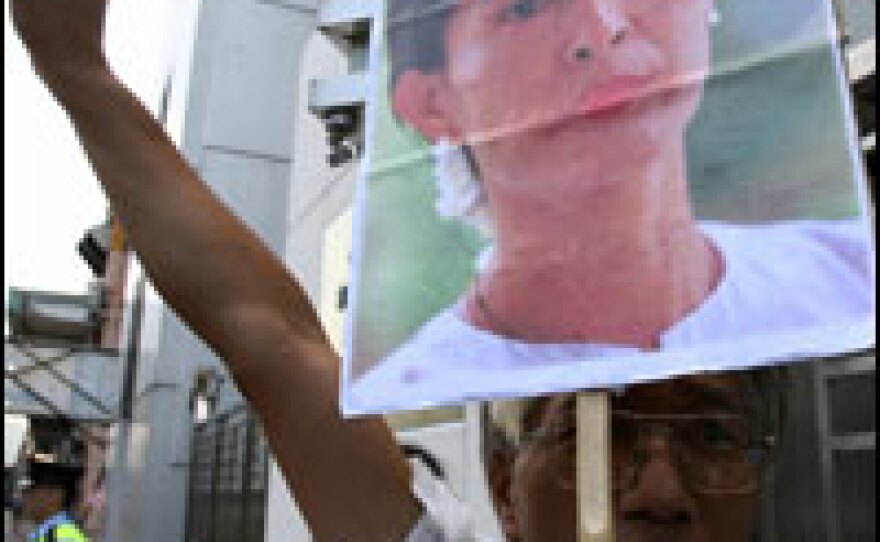


U.N. envoy Ibrahim Gambari spent the weekend in Myanmar, in an effort to find a peaceful solution to the military government's crackdown on pro-democracy demonstrators. He met on Sunday with detained opposition leader Aung San Suu Kyi and separately, with Burmese military rulers.
Reliable news about that crackdown has been scarce. The government has kept almost all reporters out. But a broadcast network called the Democratic Voice of Burma, based in Oslo, Norway, has been getting information from inside the country.
Chief editor Aye Chan Naing says that according to his news organization's sources, Gambari met with Than Shwe, the senior general of the Burmese ruling junta, in the newly built capital of Naypyitaw. (Reports from the Associated Press suggest Gambari's meeting with Shwe did not take place.)
"We don't know what they have really discussed," Naing says. "But what we know is that the government has been planning their own kind of demonstration and recruiting people, either by force or by paying money, to show Mr. Gambari that there are also people who support the government."
Naing says it has become increasingly difficult for opposition leaders to recruit people to participate in the pro-democracy demonstrations.
"A lot more people are getting more and more scared and afraid," Naing says. "But lots of student activists, and some of the Buddhist monks, (are) telling our reporters that they will still continue with this demonstration."
He says reports suggest violence has tapered off somewhat: "We've seen some shootings on the streets yesterday, but not as much as previous days."
But a new video shows a dead monk floating in a river.
"We can see a monk's robe on the body, and he was badly beaten – there were lots of bruises on the body," Naing says, describing the video. In recent days, videos have surfaced showing the Burmese military beating people on the streets and shooting into crowds.
According to Naing, the Burmese military has also conducted night-time raids on Buddhist monasteries, beating monks and taking them away. "We don't know where hundreds of monks have been taken away, and where they have kept them," he says. "It's a really, really serious situation."
Copyright 2022 NPR. To see more, visit https://www.npr.org. 9(MDAzMjM2NDYzMDEyMzc1Njk5NjAxNzY3OQ001))





